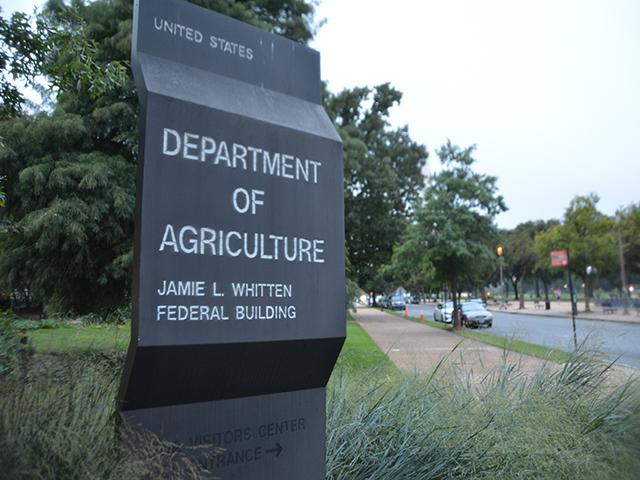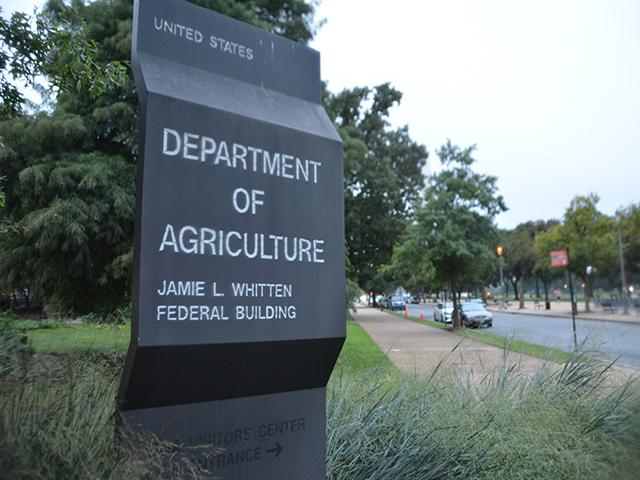Ethanol Blog
Biofuels Groups Tell USDA 45Z Credit Has to Provide Flexibility For Farmers
LINCOLN, Neb. (DTN) -- At the close of a public-comment period on a USDA request for more information on the 45Z Clean Fuel Production Credit, biofuels interests groups offered a wide range of suggestions on where farmers should fit in the program.
Here's a summation of the comments provided at the close of the comment period on Friday:
-Clean Fuels Alliance America:
"To set a practice-based crediting program up for success, farmers must know the credit value as soon as possible to help them assess what land-management practices to employ as they make both planting and harvesting decisions ahead of the season," Clean Fuels said in its comments.
The group said USDA should extend its analysis of climate-smart agriculture practices to winter annual oilseeds and to all feedstocks that have approved pathways under the Renewable Fuel Standard.
"Clean Fuels also recommends that USDA consider other practices defined by USDA's Natural Resources Conservation Service and create regional, practice-based carbon intensity credit tables using ERS' Farm Resource Regions," Clean Fuels said in a news release.
-Growth Energy:
"While our biorefineries are focused on a range of innovative technologies to reduce carbon intensity at the plant, agriculture represents more than 50% of bioethanol's carbon intensity score," Growth Energy Senior Vice President of Regulatory Affairs Chris Bliley said in the group's comments.
"It is therefore essential to recognize the full range of climate-smart agriculture innovation taking place on the farm -- including farm applications such as cover crops, reduced tillage, manure application, crop nutrient management and other ag innovations -- that can reduce the lifecycle CI score of bioethanol."
Growth Energy emphasized the importance of giving farmers "flexibility" that allows them to get credit for all climate-smart ag practices.
The group said the U.S. Treasury's guidance on the 40B sustainable aviation fuel tax credit was too restrictive and would steer farmers away from climate-smart ag by requiring them to use three specific practices before they could qualify for the credit at all.
"Using this restrictive all-or-nothing approach to recognizing the value of CSA practices will limit innovation and make farmers, blenders, and producers less -- not more -- likely to invest in emissions-reducing technologies," Bliley said.
P[L1] D[0x0] M[300x250] OOP[F] ADUNIT[] T[]
-American Coalition for Ethanol:
American Coalition for Ethanol CEO Brian Jennings offered a summation of the group's comments:
-USDA and other federal agencies should rely on the Department of Energy's Greenhouse Gases, Regulated Emissions, and Energy Use in Technologies, or GREET, model to quantify emissions and greenhouse gas credits associated with the production of agricultural commodities used as biofuel feedstocks.
"While no model can fully replicate real-world activities, GREET is considered the global gold standard and represents the best available science," ACE said in a news release.
-Greenhouse gas credit values for climate-smart agriculture practices should "routinely be updated by incorporating the best available science" and results from real-world activities such as the two USDA-Natural Resource Conservation Service Regional Conservation Partnership Programs, ACE said.
"These projects are specifically designed to address the perceived need for more empirical data on the GHG benefits of CSA practices and help improve the accuracy of the GREET model," the group said in a news release.
-ACE said because USDA has a "long track record" of "stewarding federal taxpayer funds," for the 45Z tax credit the Treasury Department should "rely on existing USDA assets in the reporting and verification."
-Renewable Fuels Association:
In a news release, Renewable Fuels Association President and CEO Geoff Cooper said in order to capture the opportunity for farmers regulators "must allow for flexible supply chain management approaches. Our goal is to maximize CSA adoption and minimize market disruptions."
According to RFA's public comments, "Decoupling CSA attributes from the physical feedstock and allowing the renewable fuel producer to use book-and-claim accounting would encourage widespread adoption of CSA practices by growers and broad incorporation of CSA emissions improvements into biofuel lifecycle carbon intensity values. At the same time, book-and-claim accounting will allow the grain market to continue operating rationally and efficiently for all participants."
The benefits of adopting a book-and-claim system, RFA said include:
-Allows farmers who are not in close physical proximity to ethanol, sustainable aviation fuel, or other biofuel facilities to be rewarded for adopting climate-smart ag practices;
-Allows the grain market to continue operating "rationally and efficiently" by facilitating the flow of grain to natural buyers based on location, logistics and other market factors;
-Allows farmers and producers of ethanol, SAF and other biofuels to better manage market and weather risk.
"RFA also encouraged USDA to analyze and quantify a much broader range of 'unbundled' CSA practices, rather than relying on the one-size-fits-all approach taken to CSA under the 40B sustainable aviation fuel tax credit," RFA said in a news release.
-Iowa Renewable Fuels Association:
The Iowa Renewable Fuels Association said in comments that it was "impractical" to require full supply chain traceability for every bushel produced using climate-smart ag practices. The group also advocates for a book-and-claim system because it "unlocks numerous benefits" for farmers and fuel producers.
IRFA said it also agreed with other groups in asking the USDA to recognize several more climate-smart ag farming practices, less "one-size-fits-all" mandatory bundling and ensuring farmers receive full credit for the carbon reduction of each practice.
"While we recognize that there is uncertainty in some CSA modeling, we urge the department to adopt the best-available science and to update any regulations as better science becomes available in a continuous cycle of improvement," the IRFA said.
"The only thing that is certain is that if adopting a CSA practice does not provide a return on investment to the farmer, adoption will be much slower than if it did."
Read more on DTN:
"Members of Congress Ask Yellen to Finalize Rules For 45Z Tax Credit by Nov. 1," https://www.dtnpf.com/…
Todd Neeley can be reached at todd.neeley@dtn.com
Follow him on social platform X @DTNeeley
(c) Copyright 2024 DTN, LLC. All rights reserved.






Comments
To comment, please Log In or Join our Community .